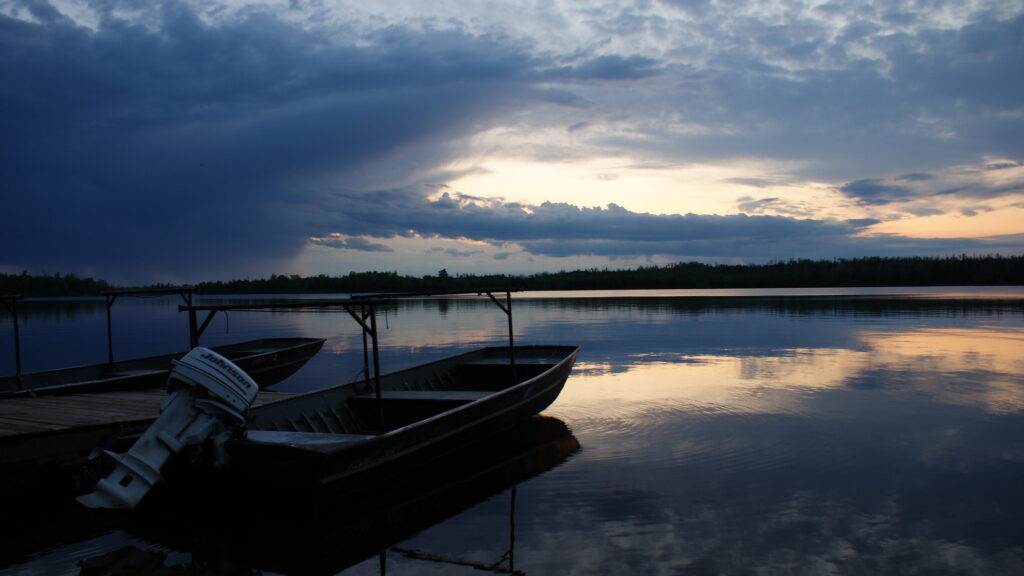
A federal judge is currently considering a request by opponents of motorized use in the Boundary Waters Canoe Area Wilderness to immediately halt the use of motor boats to carry canoeists through motorized wilderness lakes. The move comes as part of a long-running conflict between wilderness advocates and the U.S. Forest Service over the issue, and a lawsuit filed against the federal government in early February.
Wilderness Watch has sought a temporary injunction to block “towboats” from operating this year while the organization’s legislation proceeds. In February, the group filed a federal suit alleging the Superior National Forest is allowing far too many towboat trips into the wilderness area each year. They say it is exceeding levels agreed upon by Congress, wilderness supporters, and local communities since the 1970s.
“As Wilderness Watch has made clear, the Forest Service has never completed an ‘extent necessary’ determination for commercial towboats in the Boundary Waters, as [Federal law] requires the agency to do before permitting such activity,” wrote Kristen Marttila, an attorney representing Wilderness Watch wrote in an April 18 letter. The law the group cites allows commercial services in wilderness only “to the extent necessary.”
Slow motion
Wilderness Watch came to a settlement with the Forest Service after a 2015 lawsuit that the agency was supposed to take two years to study the issue and agree on restrictions. Eight years later, Wilderness Watch claims little has been done. Now, the group says the Forest Service has delayed long enough. Without a better option, they asked the judge to cancel towboat permits until a settlement is reached.
“Currently, the lakes and waterways of the Boundary Waters are frozen, and no commercial towboats operate inside it,” Marttila wrote. “With this motion, Wilderness Watch seeks to preserve that status quo, so that Wilderness Watch members and other recreators who travel to the Boundary Waters throughout the paddling season will be able to experience the wilderness character of the Boundary Waters as Congress intended it, and will not have their time in the Boundary Waters marred by the noise and turbulence that accompany the unlimited number of trips the Forest Service has improperly authorized commercial towboats to conduct in past years.”
The Forest Service’s lawyers say blocking towboats this season now would inconvenience people who have already reserved wilderness permits and plan to use towboats. Wilderness Watch counters that removing towboats from the lakes will make them more suitable for canoeists and restore a degraded section of wilderness.
“Asked what would happen to the canoeing plans this year of BWCA enthusiasts who have already booked towboat-assisted trips through outfitters, [Wilderness Watch’s Kevin] Proescholdt said they could avoid canceling by planning more time for paddling,” the Star Tribune reports.
Unreliable numbers
One problem that is complicating the case is simply tracking towboat use and collecting reliable information about how many times they criss-cross the 17 lakes where they are allowed. The Forest Service simply issues 10-year permits for towboat operators and reviews annual plans, but does not know how many tow trips they provide each year.
While the Forest Service says it has made progress since 2015 in monitoring and tracking towboat usage, they blame other issues facing the wilderness in part for the delay in implementing new limits. Everything from wildfires to mining got in the way of completing work on towboats.
“[An environmental review] document was drafted during 2021 but has not been completed and published because key Forest staff had to support the response to the Greenwood Fire and other forest fires that season,” wrote Susan Catton, Public Services Staff Officer wrote in a March deposition. ” The Forest Service also prioritized the Rainy River Withdrawal Environmental Assessment informing a decision intended to protect the BWCAW from potential adverse effects of nearby copper-nickel mining — an action Wilderness Watch itself emphasized and commended the agency for making a priority.”
After continuing to file motions and other documents with the court through April, federal judge Nancy Brasel has given the Forest Service until May 8 to respond to the latest complaints.
More information:
- Judge to decide fate of motorized towboats in the BWCA for 2023 – Star Tribune
- Wilderness advocate sues Forest Service over motorboats in Minn. canoe area – Westlaw Today
- WW Sues to Stop Motorboat Abuse in Boundary Waters – Wilderness Watch

